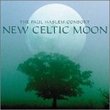| All Artists: Johannes Brahms, Eugen Jochum, Berlin Philharmonic Orchestra Title: Brahms: 4 Symphonien Members Wishing: 0 Total Copies: 0 Label: Dg Imports Release Date: 7/1/1996 Album Type: Import Genre: Classical Style: Symphonies Number of Discs: 2 SwapaCD Credits: 2 UPC: 028944971521 |
Search - Johannes Brahms, Eugen Jochum, Berlin Philharmonic Orchestra :: Brahms: 4 Symphonien
 | Johannes Brahms, Eugen Jochum, Berlin Philharmonic Orchestra Brahms: 4 Symphonien Genre: Classical
Everyone seems to agree that this mono Brahms cycle is one of the great ones, and the only question that really matters is a personal one: can you put up with decent mono sound, or must you have stereo (or to go a step fur... more » |
Larger Image |
CD DetailsSynopsis
Amazon.com Everyone seems to agree that this mono Brahms cycle is one of the great ones, and the only question that really matters is a personal one: can you put up with decent mono sound, or must you have stereo (or to go a step further, digital?). The matter is further complicated by the fact that Eugen Jochum rerecorded this music in fine stereo for EMI, and those performances are also available on two twofers, for about one and a half times the price of this set. It's your call, but by all means do sample this marvelous conductor's inspired way with Brahms. --David Hurwitz Similarly Requested CDs
|
CD ReviewsClassic performances; the definitive mono Brahms set pm444 | Okemos, MI USA | 08/05/2001 (5 out of 5 stars) "I have loved the Brahms symphonies since I first heard them over 30 years ago, and over time, I have bought nine complete sets. I have Jochum's EMI recordings of symphonies 1-3 (the 4th is coupled with an inferior performance of the "German Requiem" conducted by Tennstedt which I returned due to a defect in the pressing). I have enjoyed his EMI Brahms, which I would place above the Solti set, but below Bruno Walter on CBS/Sony. But Jochum's EMI recordings pale in comparison to this earlier mono set on DG, which is definitive. For one thing, he's leading the Berlin Philharmonic here, as opposed to the London Philharmonic on EMI. Granted, the mono sound of the DG recordings is slightly compressed compared to modern stereo, but surface noise and recording hiss are both minimal. Compared to the Toscanini Brahms set from the same era, the sound of the Jochum set is superior. (However, the Toscanini performances are quite good, in spite of allegations that they are "too fast" or "too driven", and the latest remastering has cleaned up the sound). With Brahms, more than some composers, the conductor must have a convincing and consistent emotional involvement with the music. That's why the Toscanini recordings work so well. Even listeners who don't like his readings are left with no doubt that he's totally involved in the music, not just marking time. With Jochum, the listener also gets the beautiful sound of the Berlin Philharmonic led by a gifted conductor whose love for the music comes through in every note. Simply put, there are no "wrong" moments here, no sections where you wonder what the conductor was thinking, or if the music eluded his skills or sensibilities. Instead, it all sounds completely right, and as another reviewer noted here, it "may be as close to what Brahms heard". You have that sense as you listen to these recordings, that this was what Brahms meant all along, this was how he wanted the music to be played. There are many moments where it's as if you're hearing this familiar music for the very first time. Particularly in the 3rd Symphony, where some conductors become lost or are otherwise undone by the music, Jochum is able to hold the entire thing together, with a performance that is so overwhelmingly powerful that it may very well be the standard against which all others must be judged, mono or not. As a lifelong lover of this music, I would not be without these revelatory recordings. While most listeners will also want a stereo recording of the symphonies, the Jochum DG set is indispensible. Buy it, enjoy it, and be prepared to be pleasantly surprised at what you learn about this music." Another 5 Stars for Jochum's Brahms Ruminator | The Fencepost | 04/03/2005 (5 out of 5 stars) "I've heard and been dissatisfied with many recordings of these symphonies. Von Karajan immediately puts me off in the intro to the 1st with the tympani inaudibly buried beneath his typically overweight strings. Klemperer, though one of my favorite conductors, affirms his reputation for dragging allegros. Haitink is too civilized, cool and restrained. Toscanini was at his best with Brahms, but marred by poor sound quality. Same for Furtwangler on both EMI and M&A - great performances, but limited dynamic range makes for rough listening. Brahms symphonies are made even more difficult to choose by the way record companies often release them across 3 or 4 CDs rather than 2. With Jochum, highly regarded for his Haydn and Bruckner, one has a choice between DG in mono and EMI in stereo. Only DG offers all 4 symphonies on 2 CDs, and there need be no worries over the late-mono recording - its the best of its time, very clean and dynamic in this excellent DG Originals remaster. Best of all, the performances are really dramatic and exciting. Jochum & the BPO deliver a full-scale orchestral sound with just the right balance of agility and weight for all occasions, managing the pace so that Brahms' melodic and harmonic structures are beautifully shaped with neo-classical precision, recalling Bach as much as Beethoven, while gathering power for spine-tingling climaxes that leave the listener spellbound. No set of Brahms symphonies has made a better impression on me than Jochum's. I've favored it for years now and always feel a sense of exhilaration whenever I play it. Though Jochum seems to draw more attention for his Bruckner, I find this set to be his most impressive achievement on record. And his London Symphonies, for those who appreciate the old performance style with Haydn's music, have also held up well over time." One of the best; you can't go wrong John Grabowski | USA | 03/29/2001 (5 out of 5 stars) "Jochum and Furtwangler: these two men made the Brahms recordings I
most want to hear. Both performed the symphonies many times, and both are on my desert island list. NO modern conductor is on that list...where are all the great Brahms conductors today? Solti? Bland. Barenboim? Mannered and flabby? Sawallisch? Zzzz. Bernstein? He's great for many, but should have avoided Brahms, especially in his later years on DG. But Furtwangler's case is made tricky by the fact that his best recordings of the symphonies are spread over two sets, one of them fairly expensive. To truly get the best he has to offer on every symphony, you have to get both the EMI set and the Music&Arts set... True you get other works with these sets, such as the 2nd PC and several Haydn Variations. But still, between the two sets there's a lot of money to spend--well worth it in my opinion, but still a lot of money. There is another way to get great Brahms, however: buy this set, with Jochum and the BPO at their height. These are some of the most personal, searing, and persuasive accounts of these works out there. Jochum, like Furtwangler, manages to make a personal statement out of each one, yet the music speaks for itself as well. Both demonstrate time and again they understand the structure of this music superbly, and like no living conductor. For just one example, Jochum shows a structural relationship between the two contrasting themes of the third movement of the First like no one else I've ever heard. His Fourth is a very unique statement of that work, with a first movement like I've never heard before or since from anyone. (Note: Furtwangler is also extremely impressive in this movement, and it's one of the chief reasons to get his EMI set; the Fourth on the M&A set is barely listenable due to a serious technical flaw in the master recording.) The interpretations here are so far from the current cookie-cutter Brahms symphonies, you realize just how *lucky* audiences were back then. If you're still hesitating because the cycle is mono, all I can say is get a clue. If you're letting stereophonics determine the Brahms cycle you buy, you deserve the flaccid sterile Brahms you'll get today from the likes of Masur, Ozawa, and Maazel. " |

 Track Listings (8) - Disc #1
Track Listings (8) - Disc #1








![Talk On Corners [Special Edition]](https://nationalbookswap.com/cd//m/13/7513/397513.jpg)